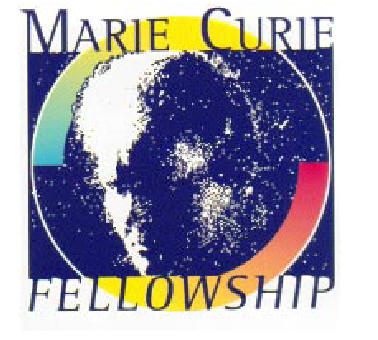Marie Curie Development Host and Marie Curie Training Site
The Marine Electrochemistry Group has been selected to act as training site for EU PhD students, and as Development Host for experienced EU researchers at Post-Doctoral level. Programs:
MCFH-2001-00189 for Training Sites
MCFG-2001-00188 for Development Hosts
Further information at http://www.cordis.lu/improving
"Electrodetection of metal and sulfide species in natural waters using microelectrodes."
Post-Doctoral researchers experienced in the area of electroanalytical chemistry, especially solid and microelectrodes, can apply. You have to be a national of an EU or associated state.
The expected stay is 12 months, with possibility of 24 months. Period: Jan 2002 - Dec 2005.
Background:
Metal and sulfide species can be detected in natural waters using
electrodes, usually mercury based but some success has been obtained using
modified electrodes. In-situ detection in surface waters, and especially
porewaters of sediments, is severely hampered by lack of suitable electrodes.
Microelectrodes would solve problems related to low ionic strength, stirring,
and minimised volume. Recent developments in micromachining and chip
manufacture have enabled the possibility to make microelectrodes, and arrays of
microelectrodes, sufficiently robust for in-situ detection.
We are
experienced in the electroanalytical detection of metal and sulfide species,
and we have the electrochemical instrumentation to back this up. We are looking
for a person to help us make, and test, microelectrodes and/or microarray
electrodes. We hope to be able to test different materials such as gold, silver
and iridium. To minimise the use of mercury we may have to use specific
electrodes for specific aims, such as silver for lead detection.
We
are looking for excellent electroanalytical chemists, experienced
with solid and microelectrodes,
and perhaps with arrays of microelectrodes, and keen to to spend
some time in a laboratory in a different country.
Contact:
Prof Stan van den Berg
Marine Electrochemistry Group, Oceanography Laboratories, University of
Liverpool;
vandenberg@liv.ac.uk
"The determination of the chemical speciation of metals (copper, iron, cobalt and zinc) in natural waters including seawater using cathodic stripping voltammetry and ligand competition."
PhD students in environmental, analytical, or marine sciences, with an interest in metal speciation can apply. You have to be a national of an EU or associated state, and plan to stay for 3 to 12 months; 2002 - 2005.
Background:
Metal speciation in natural waters.
Metal ions in natural
waters tend to be complexed by organic matter, the "metal complexing capacity".
This speciation determines the availability as well as the toxicity, to
microorganisms. The metal speciation is determined by electroanalytical
methods. Both anodic stripping voltammetry (ASV) and cathodic stripping
voltammetry (CSV) will be used: ASV for lead, and a combination of ligand
competition with CSV for cobalt, iron, copper and zinc in fresh waters,
estuaries and ocean waters. The speciation data will be used to calculate
equivalent ligand concentrations and conditional stability constants with the
aim of calculating the speciation of metals in environmental impact studies and
studies of uptake of metals by microorganisms (algae) as well as macroorganisms
(fish and plants).
The Marine Electrochemistry Group at Liverpool has
excellent facilities for electroanalysis, using conventional commercially
available as well as home-made instrumentation for on-line metal detection.
During the training the PhD student will be become proficient in the use of the
most recent voltammetric techniques to detect metals and their speciation at
picomolar levels in natural waters (clean lab facilities will be used). The PhD
student will learn to interpret the speciation data using computer models
(spreadsheets; data linearisation as well as curve fitting) in terms of
stability constants and ligand concentrations. The methods will be applied to
natural waters by participation in on-going studies of metal speciation in
waters from remote mountain lakes, and estuarine, coastal and oceanic origin.
The PhD students are encouraged to fit the training year in their ongoing
research project either by bringing samples to Liverpool, or to adapt the
method to their particular project. It is the strong intention to produce data
suitable for publication, and write a draft manuscript, within the training
period.
Contact:
Prof Stan van den Berg
Marine Electrochemistry
Group, Oceanography Laboratories, University of Liverpool;
vandenberg@liv.ac.uk
